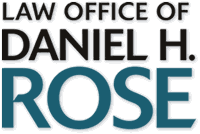Hearsay is a statement made outside of the court that is then presented as evidence by another person during a trial for purposes of submitting that statement as evidence and as fact. In most cases, hearsay is typically inadmissible evidence when a proper objection is made in a timely manner. However, in wrongful death cases, a deceased plaintiff (victim) may offer testimony prior to his or her death. Learn more about hearsay and how it may impact a wrongful death case.
Wrongful Death Cases
A wrongful death case is one in which the victim dies from the injuries inflicted upon them resulting from someone else’s negligence. If the victim lived, they would have had the legal right to bring a personal injury case to receive justice and compensation for their injuries and losses. Because the victim died, the family members of the victim have the legal right to pursue this justice and compensation on behalf of their loved one.
Testimony of the Victim
Many wrongful death cases include testimony from different parties as well as evidence that is presented to the court in order to make a determination of liability and responsibility for negligence with respect to an accident. If the victim lived, they would have had the legal right to testify on their own behalf. However, due to the fact that they passed away from their injuries prior to a trial, the question remains whether or not any statements made by the victim can be introduced as evidence.
Hearsay Exception – Dying Declaration
There is a hearsay exception which is the “former testimony” exception, where evidence is admissible if the other side had an opportunity to cross-examine or introduce the testimony at a prior time. See Fed. R. Civ. P. 804(b)(1); Conn. Code Evid. § 8-6(1); Mass. G. Evid. § 804(b)(1); R.I. R. Evid. 804(b)(1); see also Lohrmann v. Pittsburgh Corning Corp., 782 F.2d 1156 (4th Cir. 1986).
However, the more common hearsay exception that occurs within wrongful death cases is the “dying declaration” exception. If a victim made a statement under the belief that their death was either “imminent” or “impending” and their statement was directly related to the cause or circumstances surrounding their death, it can be admitted as evidence as an exception to the hearsay rules. See Fed. R. Evid. 804(b)(2); R.I. R. Evid. 804(b)(2).
It is important to note that Dead Man Statutes (allowing a hearsay exception for the admissibility of a decedent’s statements) is available only in Connecticut, Massachusetts, and Rhode Island. While some plaintiffs still attempt to admit the testimony of a deceased victim under these Dead Man Statutes, in most cases, they will not be allowed within a wrongful death case.
Contact an Experienced Attorney Today
If your loved one died as a result of someone else’s negligence, you may have the legal right to submit their testimony at a wrongful death trial under a “dying declaration” exception to the hearsay law. The laws surrounding wrongful death cases remain complex and legally challenging. Call our experienced attorneys at The Law Office of Daniel H. Rose. We will work on your behalf to ensure that the legal rights of your loved one remain protected. Contact our experienced attorneys at 415-737-5886 or online today.
